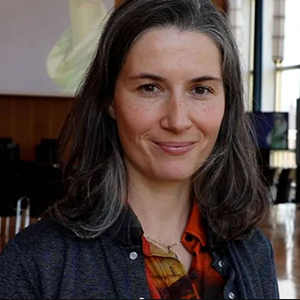Post-Populism in practice. What is next for Poland?
About the Event
In these troubled times for democracy, the good news came.... from Poland. In 2023, by turning out in record numbers, millions of Poles showed that they considered it even more important to exit from national populism than to exit from communism (more than 74% of the electorate cast ballots, compared with 62% in the tide-turning election of June 1989). However, if anyone thinks that returning to liberal democracy is an easy thing to do, they will soon be disillusioned. In many respects, the new Polish democratic government faces a much bigger challenge than its predecessor of 1989.
30 years ago, the situation was not straightforward. The communist party – like today’s Law and Justice Party (PiS) – still had positions and resources. There was, however, an almost perfect consensus on grand political objectives and the communist ideology had gone bankrupt. This was the reason why the transformation ultimately succeeded despite chaotic conditions.
The new, post-populist Poland’s transformation cannot simply be carried out like the previous, post-communist one. The crucial difference is that, unlike the communist ideology in 1989, the national populist ideology is alive and spreading around the Western World.
My lecture will explain what one may expect to happen in Poland in the coming months in three key areas.
- First, in the area of repairing the rule of law, where it is important to act not only on the level of laws, e.g. on issues such as the Constitutional Court and the NCJ, but also on the level of restoring good democratic practices and standards.
- Second, in foreign policy, which has suffered during the past eight years due to a certain isolationism within the borders of the EU, worsening of relations with Germany and lately - even with Ukraine.
- Third, in the social and cultural sphere, after almost a decade of betting on the centralization of historical memory, bringing out only the positive historical roles played by Poles, and emphasizing Polish nationalism.
About the Speaker
 Dr. habil. Karolina Wigura is a historian of ideas, sociologist, and journalist. She is an Assistant Professor at Warsaw University's Institute of Sociology, a member of the Board of Kultura Liberalna Foundation, based in Warsaw, and a Senior Fellow of the Center for Liberal Modernity, based in Berlin. Wigura focuses on the political philosophy of the 20th century and emotions in politics, as well as sociology and ethics of memory, particularly transitional justice, historical guilt, and reconciliation. From 2016 to 2018, she was a co-director of the Polish Programme in St. Antony's College at University of Oxford.
Dr. habil. Karolina Wigura is a historian of ideas, sociologist, and journalist. She is an Assistant Professor at Warsaw University's Institute of Sociology, a member of the Board of Kultura Liberalna Foundation, based in Warsaw, and a Senior Fellow of the Center for Liberal Modernity, based in Berlin. Wigura focuses on the political philosophy of the 20th century and emotions in politics, as well as sociology and ethics of memory, particularly transitional justice, historical guilt, and reconciliation. From 2016 to 2018, she was a co-director of the Polish Programme in St. Antony's College at University of Oxford.
Wigura was awarded fellowships at Institute of Advanced Studies in Berlin, Robert Bosch Academy, Institute of Human Sciences in Vienna, German Marshall Fund, and St. Antony's College at University of Oxford. In 2008, she received the Grand Press prize for her interview with Jürgen Habermas "Europe in death paralysis." Wigura is the author of The Guilt of Nations: Forgiveness as a Political Strategy (2011) and The Invention of Modern Heart: Philosophical Sources of Contemporary Thinking of Emotions (2019) – both in Polish. Her book co-authored with a conservative and catholic intellectual Tomasz Terlikowski is "Polish atheist vs. Polish Catholic" became one of bestsellers in Poland (2022). Wigura, together with Jarosław Kuisz, has recently written a book "Posttraumatische Souveränität" for Suhrkamp Verlag. She is a regular contributor to The Guardian, The New York Times, Neue Zuercher Zeitung, Gazeta Wyborcza, and other periodicals.
